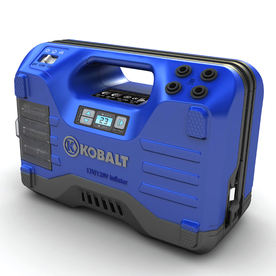- Home
- Forums
- HEARTLAND RVs GENERAL AREA
- Exterior Components - For all Heartland brands
- Tires and Wheels (For RV's)
You are using an out of date browser. It may not display this or other websites correctly.
You should upgrade or use an alternative browser.
You should upgrade or use an alternative browser.
Adding air to tires
- Thread starter Dylan
- Start date
jmgratz
Original Owners Club Member
wondering if anyone, when adding air to tires, has had to take some weight off of the tires, so it makes the air compressor work better???
You don't do that when you ad air to your car or truck tires why would you do that to your RV?
iaflatlander
Active Member
Nope!
I'm wondering, since the trailer weighs 16k pounds, empty. I'm thinking the compressor struggles to put air in the tires because of that reason, that there's such a large amount of weight on the tires.......no? I was thinkin' if you lighten the load a little, it wouldn't have to work so hard?
justafordguy
Well-known member
You may just need a stronger compressor.
JohnDar
Prolifically Gabby Member
When I use my 3 gallon air nailer compressor, which is rated for 125 psi, I have to first fill the tank until the compressor shuts off, then bleed it until it restarts. Then I connect to the valve stem and get my tires topped off at 110 psi. Trying to fill from the tank after it shuts off doesn't get it. My Viair 12V compressor is rated for 150 psi, and does the job without a problem. All depends on which compressor is handier at the time.
Jim.Allison
Well-known member
There is no difference in the effort/work it takes to get a pressure loaded or unloaded.
wondering if anyone, when adding air to tires, has had to take some weight off of the tires, so it makes the air compressor work better???
When I use my 3 gallon air nailer compressor, which is rated for 125 psi, I have to first fill the tank until the compressor shuts off, then bleed it until it restarts. Then I connect to the valve stem and get my tires topped off at 110 psi. Trying to fill from the tank after it shuts off doesn't get it. My Viair 12V compressor is rated for 150 psi, and does the job without a problem. All depends on which compressor is handier at the time.
That is the way I have always done it.
Don
ILH
Well-known member
I have two compressors - a 12v that I keep under the seat of the truck strictly for the truck tires (I'm not always pulling a trailer), and a 120v 150 psi compressor for my trailer when I'm camping. I have also found that if you use a 12v extension cord, the compressor will not have enough amperage.
For anrbody looking for a good 12 volt and 120 volt compressor (only for up to 80 psi), take a look at this one: http://www.lowes.com/pd_146781-40883-KL12120_0__?productId=3522750
For anrbody looking for a good 12 volt and 120 volt compressor (only for up to 80 psi), take a look at this one: http://www.lowes.com/pd_146781-40883-KL12120_0__?productId=3522750
JohnD
Moved on to the next thing...
For anrbody looking for a good 12 volt and 120 volt compressor (only for up to 80 psi), take a look at this one: http://www.lowes.com/pd_146781-40883-KL12120_0__?productId=3522750

That is a pretty sweet unit!
I am going to get one of those before our next campout (3 1/2 weeks away).
JanAndBill
Well-known member
Also if you took weight off of tires and aired up at 110#'s and then put weight back on tires who knows what the pressure would then be once the load was applied. Could exceed designed parameters.
Not exactly. Air pressure is dependent on the cubic feet of air within a defined volume (the inside of the tire). Assuming you could sufficiently deform the tire to reduce the volume would increase the pressure of the air, because in effect you are "compressing" the air into a smaller shape. However, manufacturers rate their tires at a specific PSI and load, any deformity in the tire by applying the rated load would be insignificant to provide any significant increase in pressure.
pegmikef
Well-known member
My Viair 12V compressor is rated for 150 psi, and does the job without a problem.
I use the Viair too, this one. http://www.amazon.com/VIAIR-Automat...TF8&qid=1437926891&sr=8-1&keywords=viair+450p
Similar threads
- Replies
- 0
- Views
- 372
- Replies
- 6
- Views
- 1K
